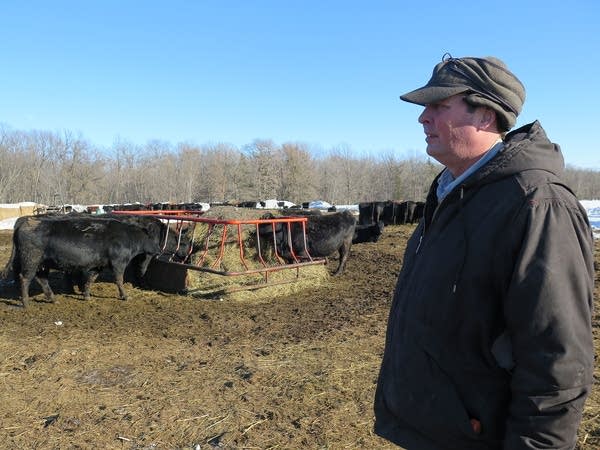Minnesota farmer wins appeal in Pineland Sands irrigation dispute case

Tim Nolte looks out over his herd of cattle on his family's farm near Sebeka, Minn., on Feb. 5, 2020. The Minnesota Court of Appeals rejected arguments that Nolte was acting as a front for R.D. Offutt Co. in seeking irrigation permits for 300 acres he bought from the giant potato-growing company.
Kirsti Marohn | MPR News 2020
Go Deeper.
Create an account or log in to save stories.
Like this?
Thanks for liking this story! We have added it to a list of your favorite stories.


